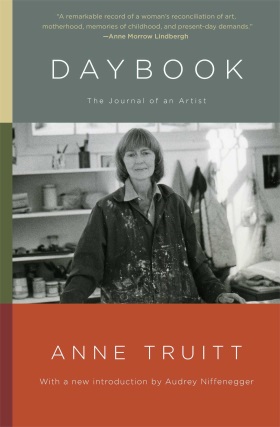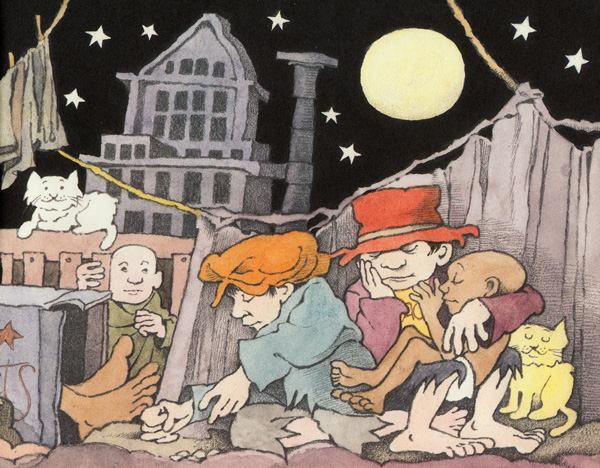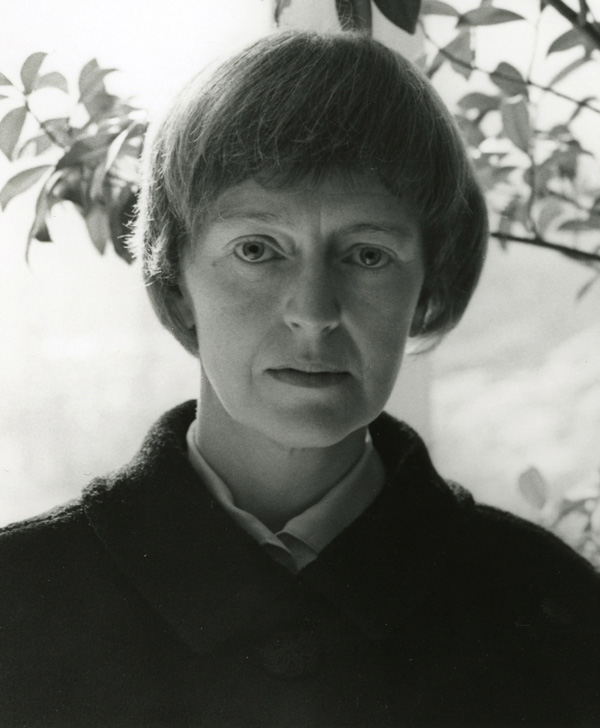Yeshua Excoriates Fellow Pharisees: "The Woe Passages"
***
Anne Truitt on Compassion, Humility, and How to Cure Our Chronic Self-Righteousness
by Maria Popova
“Love … is the honoring of others in a way that grants them the grace of their own autonomy and allows mutual discovery.”
 Countless great minds have attested to the creative and psychological value of keeping a diary, but few have manifested that more beautifully than artist Anne Truitt — perhaps in large part because Truitt’s formal training as a psychologist before she turned to art gave her higher-order powers of introspection and self-awareness, which, coupled with an artist’s penchant for patient observation, produced a true masterwork of psychological insight.
Countless great minds have attested to the creative and psychological value of keeping a diary, but few have manifested that more beautifully than artist Anne Truitt — perhaps in large part because Truitt’s formal training as a psychologist before she turned to art gave her higher-order powers of introspection and self-awareness, which, coupled with an artist’s penchant for patient observation, produced a true masterwork of psychological insight.
In one particularly poignant sequence of diary entries Daybook: The Journal of an Artist(public library) — the same soul-stretching collection of reflections on the creative life that gave us Truitt on the difference between doing art and being an artist — she examines the art of humility and the perils of self-righteousness as a gateway to true human connection, the elixir that makes possible what Adrienne Rich would so memorably describe mere months later as “an honorable human relationship.”
As I work to understand my life, its scale seems to diminish, as a tree I gaze up into flattens when I walk up a mountain and look down on it. Humility is really more natural than pride, which seems to me always to involve a lie.I remember when this lie began for me. I was in my mother’s bedroom, standing in front of a gold-bordered pier glass. It was early afternoon. The light was sunny. It was warm. I had on a white batiste undergarment, all one piece with a drop seat. The neck and arms were edged with narrow lace, and the same lace was on the ruffles gathered by elastic around my legs. I was being dressed for a party. My dress lay on the bed behind me, a translucent white cloud. My mother and my nurse were paying a new kind of attention to me, the same flavor of attention now paid to me at the openings of my exhibits. They were arranging my thin whitish blond hair into a “roach” curl, which was to run from the back of my head along its crown to the center of my forehead. They brushed my hair up, used a little water to hold it, and brushed again. The curl was totally artificial and had to be forced into being. Admonished to stand still, puzzled by their excited determination (very unlike the usual matter-of-fact tenor of the household), I addressed my image in the mirror.I had never, to my recollection, seen myself before. I looked all right to myself in general; my feeling for my body seemed pretty well matched by what I saw. In fact, I was interested and would have been glad to have been left alone to look. But the chirps about the curl went on and on, and I began to feel uncomfortable. Something was being added to me. They wanted me to be more, and the “more” was the curl. I began to want the curl too, and I remember the first sick feeling of anxiety as they worked to get it to stick there. My healthy self felt whole without it, and recognized quite clearly that I was being made a fool of. But I was fascinated by being praised. The whole room danced with how cute I was. I knew I had done nothing except to stand there. I hadn’t made the hair to begin with, much less the curl. But there it was; I began to want to please in order to get praise. I began to participate in the lie that I was something special, to take that role, to accept what I did not want and did not even think right for myself, in order to taste the sickly sweet flavor of praise.I remember turning around from the mirror to the bed as they lifted the dress and held it out for me to step into. I held my head stiff with pride.[...]The roach curl is the earliest remembered strand of a web I wove to add on to what I was, what others wanted me to be. The idea that I must meet arbitrary requirements caught fire from my clear recognition that I was very small and powerless; and it coalesced into the fear that if I failed to meet these mysterious requirements I would be abandoned.
Truitt observes that we turn the same tendency outward, in how we relate to and assess others, indulging a dangerous and presumptuous compulsion to impose on their identity our own shoulds, adding to history’s most elegant definitions of love:
Unless we are very, very careful, we doom each other by holding onto images of one another based on preconceptions that are in turn based on indifference to what is other than ourselves. This indifference can be, in its extreme, a form of murder and seems to me a rather common phenomenon. We claim autonomy for ourselves and forget that in so doing we can fall into the tyranny of defining other people as we would like them to be. By focusing on what we choose to acknowledge in them, we impose an insidious control on them. I notice that I have to pay careful attention in order to listen to others with an openness that allows them to be as they are, or as they think themselves to be. The shutters of my mind habitually flip open and click shut, and these little snaps form into patterns I arrange for myself. The opposite of this inattention is love, is the honoring of others in a way that grants them the grace of their own autonomy and allows mutual discovery.[...]Compassion is one of the purest springs of love.

Illustration by Maurice Sendak from 'We Are All in the Dumps with Jack and Guy,' an unusual story about compassion and love. Click image for more.
Recounting another childhood memory, Truitt reflects on the cruelty of judgmental opinions, which seem to come to us almost automatically — something all the more palpably true half a century later, in our present age when people feel increasingly entitled to passing public judgment on others, in a culture where it’s so much easier to be a critic than a celebrator. This tragic automation of the human psyche, Truitt suggests, is constantly conditioned by peer pressure — one that good-personhood requires we actively counter:
Why didn’t Miss Perry marry Mr. Lockhart, who sat in the sun outside his hardware store all day? And I could make people laugh by saying, “Because he’s too fat,” tickling myself with pleasure while feeling sick because I never passed him without feeling deep compassion, so short on his little stool, so round a cannonball of stomach resting on his patiently parted knees. Why doesn’t she marry him, I asked myself in a different part of myself, feeling the sere waste of their lives, his resignation to his lonely stool, hers to her sewing machine and to her stolid, passive mother.The judgments I copied, then learned to make as I observed others make them, with just enough of myself in them to make them amusing or interesting contributions to conversation, began as fragments. It took time and effort to make them fit into cohesive plaques of personality that would be hailed with little cries of recognition and appreciation. It was a lot more difficult than the curl, but the effect was the same: I had to hold myself stiff, but I got the praise. And saved myself from being outcast.
In a diary entry two days later, Truitt revisits the subject of self-righteousness, distilling with piercing poignancy the essence of compassion and empathy:
I have always been mystified by the speed with which people condemn one another. Feeling as righteous as Christ chastising the money-changers in the temple, they cast their fellows into the outer darkness of their disapproval. This seems to give them intense pleasure. Whenever I am tempted by this pleasure, I remember some impulse in myself that could have led me, granted certain circumstances, into the condemned position. This has caused me to distrust the part of myself that would relish self-righteousness.
Daybook is rich and revelational beyond words from cover to cover. Complement this particular excerpt with Anna Deavere Smith on the discipline of not letting others define you and Anne Lamott on how we keep ourselves small by people-pleasing.


No comments:
Post a Comment